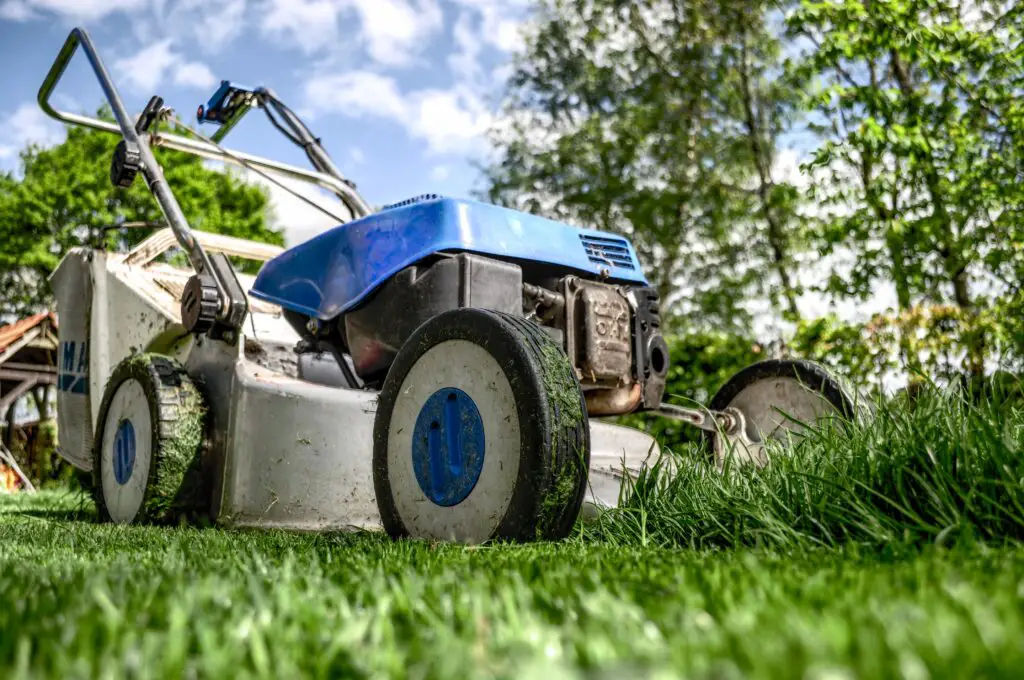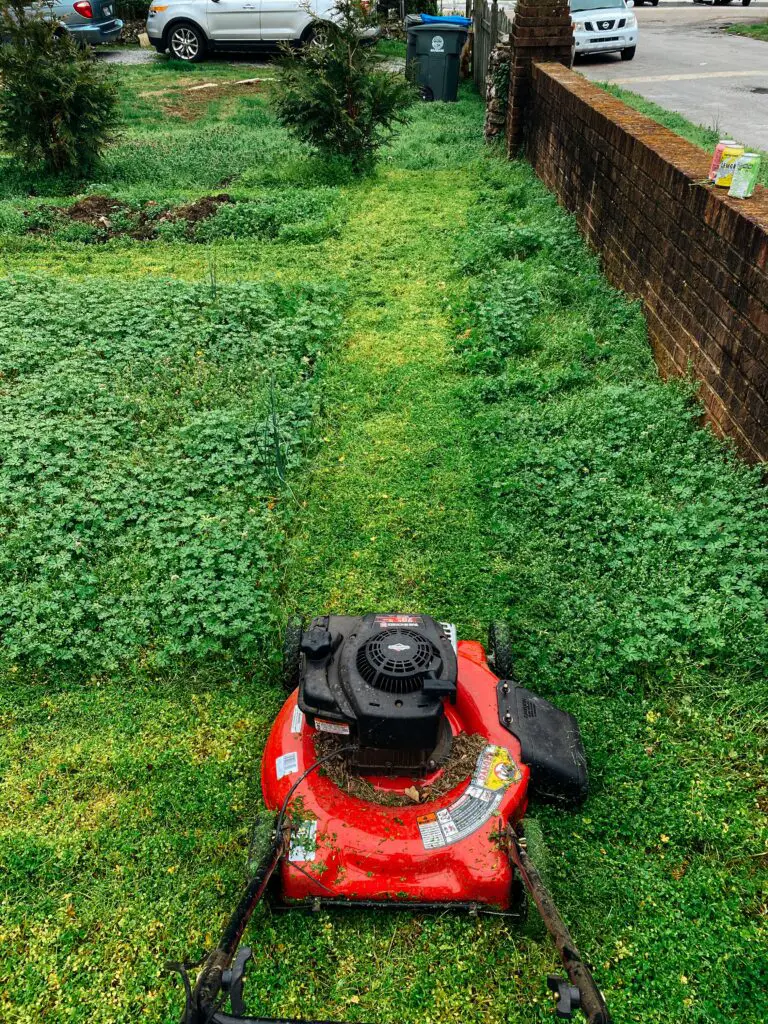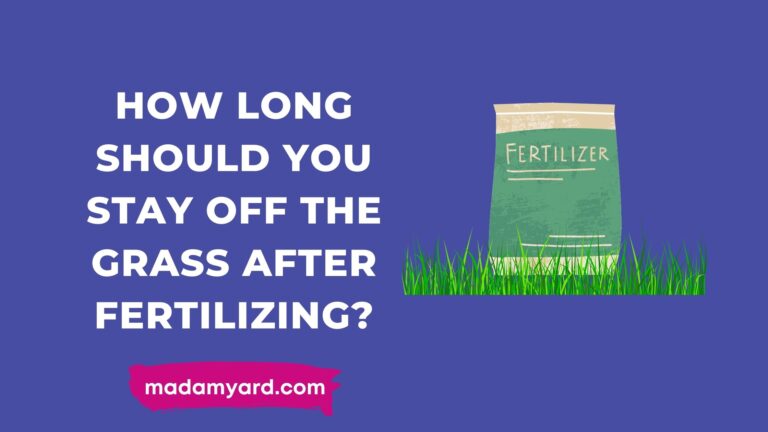What Types Of Gas For Lawn Mowers Use? Regular Or Premium?
A gas-powered lawnmower engine will require fuel to function and generate the necessary power for grass cutting. There are several types of gas for lawn mowers, including regular and premium. s
The appropriate gas for your lawnmower improves fuel economy, increases performance, and extends the engine’s life. So, what type of gas for a lawnmower is best?
You’ll need to consult your lawn mower’s user handbook to figure out what kind of gasoline to use.
A lawnmower usually requires unleaded gasoline for a lawnmower with an octane value of 87 or higher. Two-stroke engines will require the addition of two-cycle engine oil to the gasoline.
The incorrect type of gasoline might harm your lawn mower engine or reduce its performance.
If your lawnmower won’t start, idles erratically, stops out, or produces a “knocking” sound, you’re running out of gas. Drain the gas from your lawnmower, clean the carburetor, then refuel with the appropriate gas.

What Types Of Gas For Lawn Mowers?
While there is no specific type of gasoline that must be used to run and operate your lawnmower, there are several characteristics to remember when selecting the best lawnmower fuel.
Clean gasoline is ideal for small motor devices like lawnmowers. While it may appear to be an easy task, there are a few things to remember when filling your lawnmowers.
Failure to select the correct fuel specs for your lawnmowers might result in machine faults or, worse, engine damage and breakdown. When it comes to picking the appropriate fuel, there are a few factors to consider.
1. Unleaded Gasoline
To run the small engines of lawnmowers, we should use unleaded gas, just as we would for conventional big engine machines like vehicles.
Unleaded gas is a more environmentally friendly fuel that helps to reduce hazardous emissions in both individuals and the environment.
2. Fresh Gasoline
Keep in mind that the quality of gasoline degrades with time. The average amount of time it takes for gasoline to degrade is 30 days.
Keeping the gas in your lawn mowers fresh will help prevent malfunctions while in use, as well as engine harm in the long term.
If you want to store a gasoline supply in your shed, it’s a good idea to use a fuel stabilizer to extend the life of the gasoline and prevent degradation. Fuel stabilizers can help your fuel last up to two years longer.
3. E10 Gasoline
The level of ethanol in your gasoline impacts the quality of the fuel and how well your lawnmower engine performs. E10 fuel, which contains 10% ethanol, is permitted and will operate correctly in your lawnmower.
However, gasoline with a higher ethanol concentration is available on the market. However, higher ethanol content gasoline, such as E15, should be avoided because it is not permitted in small engines.
Minimum 87 Gas Octane Rating
While a high premium gas octane level isn’t required, maintaining it at least at 87 is a good practice to extend the life of your lawnmower’s small engines.
If the gas you chose for your lawnmower has a high-quality octane rating, you can be confident that the little engine in your machine is operating on clean fuel.
Your lawnmowers’ engines will be damaged by low-quality fuel with a low octane rating. Keeping this in mind when selecting the proper gas for your lawnmowers will help you extend the life of your mowers while also saving you time and money.
Can Lawnmowers Use Premium Gas?

In your lawnmower, you may surely use premium high-octane fuel. However, you should consult your mower’s owner’s handbook before using premium petrol.
Because most engines are built to run on low-octane gasoline, anything better than that can destroy the mower’s fuel system.
Furthermore, while premium gas costs 5 to 20 cents per gallon more than ordinary petrol, there are usually no benefits. You’ll need a higher compression ratio to obtain any advantage from higher octane levels.
In other words, there’s no harm in using premium petrol in your lawnmower, but don’t expect it to boost its performance.
Regular Or Premium Gas For A Lawnmower?
You’ve probably heard people discussing regular and premium gas, particularly in automobiles.
To this time, everyone understands that premium gasoline performs better than regular gasoline. While this is not far from the truth, premium gasoline is only beneficial in certain engine types.
The octane rating distinguishes regular gas from premium gas. Regular gasoline has an octane rating of 87, whereas premium gasoline has a rating of 91 to 93.
More octane fuel may withstand higher compression before detonating, resulting in fewer “knocking” or “pinging” in the engine.
For best performance and fuel economy, engines with high compression ratios or turbochargers generally use high octane gasoline in lawnmowers, which may be found in premium gas.
That is why premium petrol is unnecessary for a lawnmower or any other small engine.
The General Assumption About Premium Gas For Lawn Mowers
The term “premium” usually implies that something is superior, and particularly when contrasted to anything called “regular.” The usual notion is that a premium product is of high quality, resulting in longer engine life, lower emissions, and improved performance.
In actuality, utilizing premium gasoline in your mower will not provide any of these benefits, and using pre isn’t going to give you any more power.
The type of engine in which specific gasoline is utilized determines its performance. If you run a high-performance engine on low-octane gasoline, it will not perform as well as it might.
Fortunately, the engine in your lawnmower is not a high-performance engine, and a higher-octane alternative will provide no benefit to an engine built to run on conventional gasoline.
In the United States, most automobile engines use regular gasoline. The sole reason to buy fuel with a higher octane rating is to keep high-performance engines from knocking.
What Is The Best Types Of Gas For Lawn Mowers?
I suggest using fuel with an octane value of 87 or higher for all of your mowers, and there’s no need to go much higher. Fuels with an octane rating of 89-93 are ideal for high-powered automobiles and vehicles.
The ethanol content is also significant. Ethanol absorbs moisture, causing problems with your engine. It is advised that your fuel blend includes no more than 10% ethanol. Otherwise, you may have trouble starting your lawnmower.
In general, ethanol can be, but this isn’t a problem if you use the gasoline often and don’t let it sit for lengthy periods.
For 4 cycle lawnmower gas in engines, I like this ethanol-free gasoline, and it’s already mixed and ready to use in much outdoor power equipment.
It’s already mixed and ready to use in much outdoor power equipment.
Conclusion
Maintaining a long lifetime for your lawnmower requires fuel. Keep in consideration the sort of engine your mower has and how much power it requires when deciding what type of gas to use.
Most riding mowers run on the same sort of gas as automobiles. However, there are certain variations when using high ethanol fuel, so avoid it if feasible. To get the best performance, keep an eye on the oil level and change the filters regularly.







